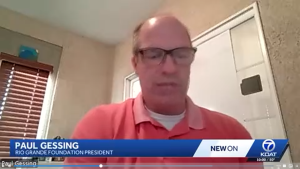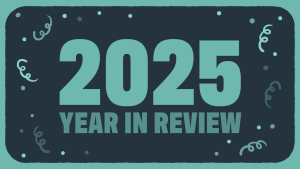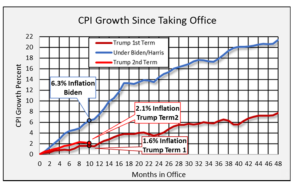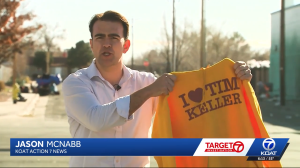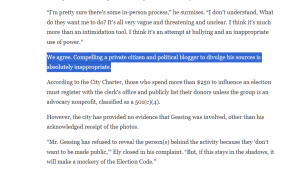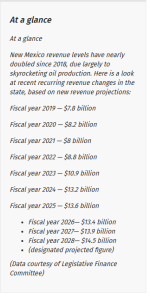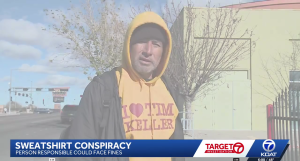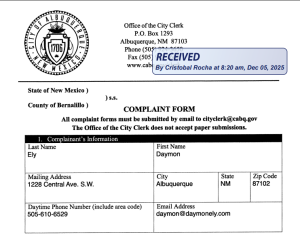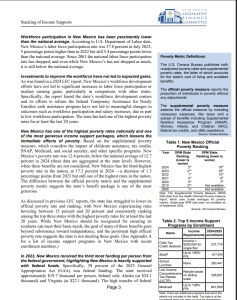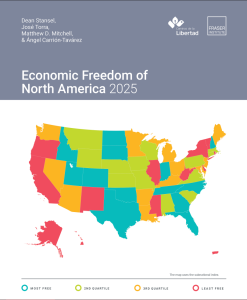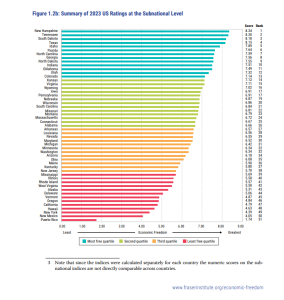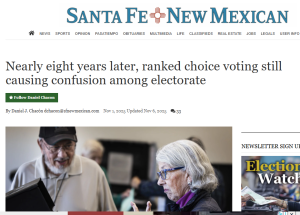The following appeared in the Albuquerque Journal on December 7, 2025.

In a study published earlier this year, we highlighted the fact that New Mexico was the only state in the U.S. to have lost economic freedom since 1981. We now know that it is worse than we thought.
People are more economically free when they are allowed to make more of their own economic choices; economists measure this freedom by looking at the degree to which government spending, taxation and regulation limits choice.
We relied on data from the Fraser Institute’s Economic Freedom of North America index. Over the last two decades, it has become the most cited and most used measure of state-level economic freedom in the U.S. Like its national-level counterpart, The Economic Freedom of the World, the state index has been used in hundreds of academic studies assessing the effect of economic freedom on a wide variety of measures of economic wellbeing.
These studies find that states and nations with higher levels of economic freedom tend to prosper. They have higher incomes, faster growth and less poverty. And prosperity yields a variety of other salutary outcomes including cleaner environments, higher life satisfaction and more gender equality.
Working within the scope of the rule of law and a system of private property rights, humans tend to voluntarily cooperate together to improve their surroundings and outcomes. Government can play a useful role in enforcing property rights and in ensuring that people are free from fraud and force. But it can also stifle innovation and productivity by consuming wealth and placing too many barriers on workers, consumers, businesses and entrepreneurs.
The latest edition of the Economic Freedom of North America has just been released. And sadly, New Mexico has lost even more ground relative to the other 49 U.S. states. Now, the Land of Enchantment has fallen behind New York and Hawaii to be dead last in the nation.
This should not surprise anyone who follows New Mexico policy. The state has had a massive oil and gas boom in recent years, creating a gusher of tax revenue. But policymakers have done nearly nothing with that revenue to make the state more appealing to investors, workers or businesses.
Since the start of 2025, New Mexico’s oil and gas sovereign wealth fund has leapt in value from $58 billion to $66 billion. The general fund budget has risen 71% during Lujan Grisham’s seven years in office. As a share of statewide personal income, the state’s general consumption expenditures are the highest in the nation. Transfers and subsidies are the third highest. Sales tax revenue is the third highest, and government employment is the second highest. As a share of per capita income, New Mexico’s minimum wage is the second highest in the nation.
Instead of creating and enforcing a level playing field for all New Mexicans, the state’s policymakers have long preferred to lavish privileges on favored firms and industries. Time and again, the state’s film subsidy program, for example, has been found to be a money loser. But they keep throwing good money after bad.
Market pressures have recently forced state policymakers to shift corporate welfare spending from unsustainable boondoggles like Maxeon and Ebon Solar to more economically viable projects like data centers (Project Jupiter in Santa Theresa and Zenith Volts near Roswell). But whether these projects come to fruition or not, corporate welfare is not an efficient, equitable or sustainable strategy for long-term economic development.
Instead, policymakers should focus on improving overall economic conditions by increasing economic freedom for all. While it may be unfashionable to say amid massive budget surpluses and revenue growth, the state needs to restrain spending. It should also reduce taxes, ease regulatory burdens and let the private sector play a larger role in economic development.
The state’s descent to dead last in economic freedom, less free than even New York and California, should be a wake-up call.

